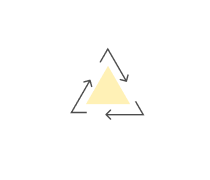SPELLING. Write down the following words! For example:...
üllatus /sə(r)ˈpraɪz/ - ________________________
Kindlasti /ˈdef(ə)nətli/ - _____________________
Stay + ed =
Hope + ed =
Kaduma /ˌdɪsəˈpɪə(r)/ - ________________________
Study + ing =
Play + ing =
Valitsus /ˈɡʌvə(r)nmənt/ - ------------------
Write + ing =
Match the names of the tenses with the rules!
Lemmik /ˈfeɪv(ə)rət/ - ------------------------
Vajalik /ˈnesəs(ə)ri/ - __________________________
Saama /rɪˈsiːv/ - ______________________
Die + ing =
I kiss, he ______________
Use the correct tense form!...
I ______________(work) for this company for more than thirty years,...
Sam ______________ (arrive) in San Diego a week ago.
19. When I arrived home last night, everybody ____________________...
In winter Susan ___________ (love) skiing.
I __________________ (just, finish) vacuuming. The guests can come...
I went skiing ____________ times and I really enjoyed it.
I clap, he _________________
1 hero - 2 _______________
1 woman - 5 ________________
1 leaf - 2 ________________
COMPARISON. Fill in the gaps with adjectives in correct...
1 potato - 100 _______________
Let's watch a Woody Allen film instead of this war documentary...
1 box - 3 _____________
1 tooth - 32 ___________________
Today is the second day of my trek around Mount Annapurna. I am...
When Jack _______________ (enter) the room, I didn't recognise...
Clap + -ed =
Study + ed =
Add -s like in the example: I work, he works....
Shhhhh! Be quiet! John ________________ (sleep) .
I think I _____________________ (make) a short shopping trip to...
1 person - many __________________
1 wife - 5 ________________
1 radio - 13 ______________
1 bath - 2 _________________
"How is your headache?" - "It's getting...
When I was a child, a man of seventy seemed to me to be as...
By the time I got to the office, the meeting ________________ (begin,...
Every time Tam says a new word, Liam _____________(try) to repeat it.
I try, he __________________
Thomas is an author. He ______________ (write) mystery novels and...
You look really great! ___________________ (You, exercise) at the...
16. I ___________ (see) many pictures of the pyramids before I went to...
1 goose - 4 ____________
Since computers were first introduced to the public in the early...
The first computers were simple machines designed for basic tasks....
Travel + ed =
Lie + ing =
PLURAL. Give the plural forms of the following words! 1 deer - 10...
1 library - 5 __________________
Trish was sleeping while her husband _________________ (drive) through...
Of all the girls in my English class, Maria is __________...
Our new neighbour seems very nice but she talks _______.
1 sheep - 7 ______________
1 mouse - 4 ___________________
Sue's got plenty of shoes but she still wants to buy...
China is the country with ____________ (large) population.
This is Mike who is ___________ (old) of my three brothers.
I can't believe you're giving Don the job offer. I thought he...
How _____ flour do we need for the recipe?
She's got too ___________ time for partying.
There was very ____________ wine left so I went to the shop to...
Ceramics _________ (be) an old form of art.
Bruno is happy. He didn't make very ________ mistakes in the...
The police _____________ (be) looking for the thief.
CHOOSE THE CORRECT ANSWER! The news __________ (be) terrific! I'm...
Match the names of the tenses with the rules!

















